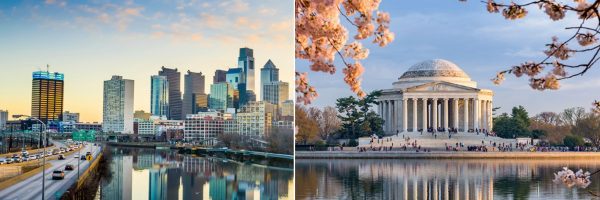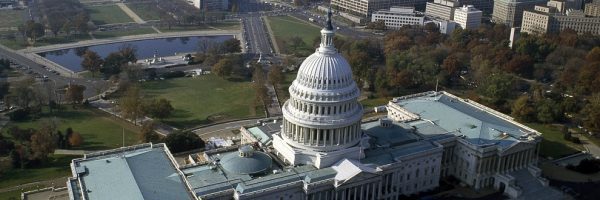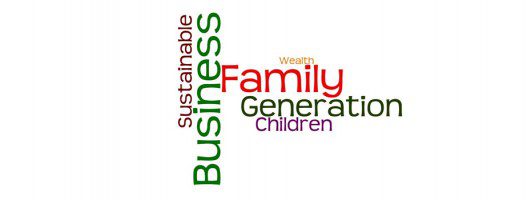How Affordable are Baltimore MBA Programs Compared to DC?

A few years ago, the Baltimore Sun published a hilarious list outlining 100 reasons why Baltimore is a better city than Washington DC. Here are some of our favorite reasons:
- We don’t start conversations by asking, “What do you do?” or “Who do you work for.”
- It never takes us 45 minutes to go six miles.
- Our traffic doesn’t lead to clinical depression.
- D.C.’s happy hour is regular price to us.
- Our signature food is crab cakes and pit beef. D.C. has … yeah.
- We weren’t built on a swamp.
- Cal Ripken is 2,632 times better than any D.C. sports figure.
- The NATIONAL Aquarium: Not in the nation’s capital.
Yes, some of these reasons are very tongue-in-cheek, and the list aimed to be light-hearted and irreverent. But if you’re a prospective MBA in the DMV, there are some clear advantages to picking a business school in the Baltimore metro over the Washington DC metro, namely the affordability of programs.
Let’s take a deeper dive and see just how affordable Baltimore MBA Programs are compared to their DC counterparts.
Which MBAs Can You Earn in Baltimore and DC?
Both Baltimore and Washington DC are home to some of the country’s most prestigious business schools and MBA programs. Programs offered in the Baltimore metro include:
- Perdue School of Business – Salisbury University
- Carey Business School – Johns Hopkins University
- Sellinger School of Business – Loyola University Maryland
- University of Baltimore – Merrick School of Business
- University of Maryland R.H. Smith School of Business
Meanwhile, MBA programs offered in the Washington DC Metro include:
- George Mason University School of Business
- George Washington University School of Business
- Howard University School of Business
- Kogod School of Business – American University
- McDonough School of Business – Georgetown University
How Affordable are Baltimore’s Programs Compared to DC’s?
Yes, both metros boast and impressive programs that are sure to provide prospective MBAs with a high-quality business educations, but which city offers the more affordable options?
Here is the average cost per credit hour at business schools in Baltimore.
- Carey Business School Global MBA: $2,174 per credit hour
- Perdue School of Business Full-Time MBA: $392 per credit hour (in-state students), $703 per credit hour (out-of-state students)
- Sellinger School of Business Full-Time MBA: $1,238 per credit hour
- Merrick School of Business Flexible MBA: $824 per credit hour (in-state students), $1,149 per credit (out-of-state students)
- R.H. Smith School of Business Full-Time MBA: $1,658 per credit hour (in-state students), $1,998 per credit (out-of-state students)
Let’s compare these tuitions rates to the MBA offerings in the Washington DC area:
- George Mason University School of Business Full-Time MBA: $950 per credit hour (residents of Virginia, Maryland, and Washington DC), $1,751.50 per credit hour (out-of-state and international students)
- George Washington University School of Business Global MBA: $1,837 per credit hour
- Howard University School of Business Full-Time MBA: $1,259 per credit hour
- Kogod School of Business Full-Time MBA: $1,642 per credit hour
- McDonough School of Business Full-Time MBA: $1,880 per credit hour
When looking at tuition costs, Baltimore takes the cake. Even though Baltimore boasts the most expensive full-time program (Carey Business School Global MBA), the average cost per credit hour for both in-state and out-of-state students is about 16 percent lower in Charm City.
Washington DC vs. Baltimore MBA Cost
| Baltimore | Washington DC | |
|---|---|---|
| In-State Cost (per credit hour) | $1,257.20 | $1,513.60 |
| Out-of-State Cost (per credit hour) | $1,452.40 | $1,673.90 |
Additional Costs To Consider
Aside from tuition, business students living in the Baltimore area have a lower cost of living then their Washington DC counterparts. According to Numbeo, you would need around $4,541 in Baltimore to maintain the same standard of life that you can have with $6,100 in Washington DC, assuming you rent in both cities. This calculation uses the website’s Cost of Living Plus Rent Index to compare cost of living.
Here’s a closer look at how Numbeo creates its Cost of Living Indexes, and a breakdown of a few key stats to look at when comparing Baltimore to Washington DC:
- Consumer Prices in Baltimore, MD are 14.78 percent lower than in Washington DC
- Rent Prices in Baltimore, MD are 39.97 percent lower than in Washington DC
- Groceries Prices in Baltimore, MD are 15.70 percent lower than in Washington DC
- Local Purchasing Power in Baltimore, MD is 10.21 percent lower than in Washington DC
The case for Washington DC
So Baltimore’s MBA offerings are, on average, more affordable than Washington DCs. But what if money isn’t an issue, or you happen to get into a program in DC? Here are a few ways that the Capital City has the Monument CIty beat, according to Thrillist:
- Culinary Scene: DC is experience a craft beer renaissance with four breweries opening in recent years: DC Brau, 3 Stars Brewing, Chocolate City, and Bluejacket (soon). Meanwhile, notable restaurants such as minibar (Andres), Le Diplomate (Starr), Kapnos (Isabella), Range (Voltaggio), and Casa Luca (Trabocchi) have also opened. Baltimore isn’t really known as much of a foodie town.
- Public Transit: The Metro is one of the most efficient, most convenient, and cleanest public rail lines in the country. Baltimore’s metro runs East to West only, and doesn’t link up with either of the two other rail systems.
Oh, and remember that Baltimore Sun article we reference at the top of the page? Enjoy DC Inno’s slightly more punchy response.
Choosing the Best MBA: Philadelphia vs. Washington DC

On the surface, cities like Philadelphia and Washington DC appear to have a lot in common. Both have occupied roles as a center of U.S. history, and have transformed into exciting and ever-changing metros for both established businesses and new startups. If you’re interested in earning an MBA in a top metro area on the East Coast, it might seem impossible to choose between the two.
Even so, Philadelphia and DC offer a number of exciting—but different—kinds of opportunities for up-and-coming business professionals. Between what program you want to pursue and what kind of career you envision yourself in down the line, understanding the differences between top metros can be a crucial part of planning your future. Below, we’ll break down some of the biggest differences in location, programs, and job placement for each metro.
Philadelphia vs. Washington DC: The Differences
For ambitious business students hoping to put their education to work in a government agency, it’ll be hard to beat the nation’s capital for opportunities and experience. Even for those looking outside of the government setting, the DC metro area is home to fifteen companies on the Fortune 500 list, including corporate giants like Exxon Mobile and Walmart. Yet while such heavy hitting companies in the area provide a high earning potential, MBAs will still want to consider the high price of living in DC: currently, the city ranks as the third most expensive place to live in the country.
Check This Out: Searching for the World’s Top MBA Recruiters: Comcast
While Philadelphia may not be the city that pops into your mind as a bustling center of business, research shows the City of Brotherly Love can’t be beat when considering the job market and affordability: a 2016 survey from Adobo found that Philadelphia’s unemployment rate was 20 basis points below the national average, while the average price of a home was at or below 30 percent of the average income. MBA graduates will find no shortage of business opportunities in the city, even among major firms: in 2017, 20 companies in the Philadelphia metro made the Fortune 500 list.
Washington DC’s Full-Time MBA Programs
Featuring more than 35 higher education institutions with post-bachelor business programs, Washington DC is home to some of the top MBA programs in the United States. Fully aware that many of these programs will shape future politicians and government leaders, many of the MBA programs in Washington DC include a focus on integrity and ethics within the global business community.
Full-Time MBA Programs in DC Include:
- George Mason University School of Business
- George Washington University School of Business
- Kogod School of Business – American University
- University of Maryland R.H. Smith School of Business
- McDonough School of Business – Georgetown University
Philadelphia’s Full-Time MBA Programs
When it comes to business schools, Philadelphia is probably best known for The Wharton School at the University of Pennsylvania, consistently named as one of the top business programs in the world. But Philly is also home to a wide range of programs with a variety of specializations. Programs like the full-time MBA at Temple University’s Fox School of Business also offer students to take their education beyond Philadelphia, with international campuses based in Italy, London, and Japan.
Full-Time MBA Programs in Philadelphia Include:
- La Salle University
- LeBow College of Business – Drexel University
- Villanova School of Business
- West Chester University
Cost of MBA Programs
Just as important a factor as cost of living, average cost for an MBA program is an important consideration when choosing where to earn your degree. As expected, top programs in both Philadelphia and Washington DC can come with a high price tag. The average cost estimate for one year at Wharton is $105,265, while tuition at DC’s Georgetown McDonough School of Business is $90,591. The average for each city, however, remains much for affordable: approximately $82,090 for programs in Washington DC, and slightly lower in Philadelphia—schools like West Chester even offer an MBA as low as $21,000 per year.
Job Placement and Salary
With so many incredible companies located in both Washington DC and Philadelphia, MBAs have the chance to earn top salaries that can go a long way in both cities. Depending on the position, MBAs in Philadelphia can make anywhere from $64,665 per year (as a financial analyst) to $104,186 per year (as a senior product manager). In Washington DC, the average salary for an MBA graduate is in the $80,000 range, with employees reporting yearly salaries of $74,758 (operations manager) up to $111,983 (marketing director).
The Boston vs. Washington DC Full-Time MBA Battle

Choosing the right city for your MBA program can be a bigger choice than it seems: given the connections and opportunities an MBA typically provides, the city where you pursue your degree will likely be the same city where your career begins and grows.
Even if you’ve narrowed down your business school search to the east coast, you’ve still got a number of top metros to choose from. So regardless if you’re looking south to Washington, D.C., or north to Boston, both metros will likely offer a number of benefits for up-and-coming business professionals.
Both D.C. and Boston offer a number of exceptional full-time MBA programs, giving a prospective MBA a lot to think about. Below, we’ll break down some of the biggest differences in location, programs, and job placement for each metro.
Location
As long as you can deal with snow, Boston is a multicultural hub of business that covers a variety of industries, from startups to high tech and the creative economy. Massachusetts is home to 30 Fortune 500 companies, with massive corporations like General Electric and Liberty Insurance Group centered within Boston. However, as the city continues to grow and improve, the cost of living is also climbing, with Boston ranking eight overall as the most expensive city in the United States.
If you are looking to use your business acumen in a government setting, there are few places better to go than the nation’s capital. With fifteen companies making the Fortune 500 list in the Washington DC metro area, there are a number of opportunities for MBAs to put their business skill to work, even outside of government agencies, with companies like Wal-Mart and Exxon Mobile leading the list. However, DC even outranks Boston for cost of living, ranking as the third most expensive city in the United States.
Washington Full-Time MBA Programs
The Washington DC metro has more than 35 higher education institutions with post-bachelor programs for business students. Featuring some of the top ranked MBA programs in the country, many of the DC programs focus on professional integrity and ethics, attempting to reflect its location in the country’s capital. Many of the MBA programs here also focus on placing business within a global context, encouraging students to gain real-world experience outside of the classroom to gain a better understanding of the global business community.
Full-Time MBA Programs in DC Include:
- George Mason University School of Business
- George Washington University School of Business
- Kogod School of Business – American University
- University of Maryland R.H. Smith School of Business
Boston Full-Time MBA Programs
The Boston metro features some of the top ranked and oldest business schools in the world, which focus on placing students within the global economy and encouraging study abroad opportunities that allow students to get hands-on experience in international business. Given Boston’s reputation as a growing business hub, many of the top jobs in the city may require an MBA.
Full-Time MBA Programs in Boston include:
- Sloan School of Management – MIT
- Harvard Business School
- Questrom School of Business – Boston University
- Sawyer Business School – Suffolk University
- Carroll School of Management – Boston College
Cost of MBA Programs
Cost can be an important consideration when choosing a degree program. The average tuition costs of the Washington DC programs mentioned above is roughly $82,090, though the number may be slightly less for local students. In Boston, the range may be slightly higher. Harvard Business School can cost up to $122,000 per year, but other quality programs in the Boston metro can also be found as low as $91,040.
Job Placement and Salary
The cost one is willing to spend on an MBA is often largely determined by the potential salary that can be made after obtaining the degree. Given that both Boston and DC are among the U.S. cities with the highest cost of living, salary may be an important determination in selecting a city to start your career. Thankfully, both cities offer the chance for high earning potential. According to PayScale, Boston MBA graduates can earn anywhere from $53,725 on average to $173,940. In Washington DC, where there is a slightly higher cost of living, salaries can range from $58,402 to $147,715.
Washington DC Executive MBA Programs You Need To Know

Are you working professional in the Washington DC metro who really wants to get to the top of the corporate ladder? Do you have significant managerial experience, but want to take the next step and assume a leading role in your organization. If this sounds like you, than an Executive MBA (EMBA) is what you’re looking for. Continue reading…
New Dean’s Scholar Award Presented to Outstanding George Mason Faculty

In an effort to show appreciation toward George Mason School of Business faculty members who go above and beyond, the school recently present the newly formed Dean’s Scholar Award. Continue reading…
George Mason School of Business: A Way Of Life

Meet the Ragan’s: a business-minded family that has stuck together through the years.
Several generations of the family has worked at the family’s business, Joe Ragan’s Coffee, which Joe Ragan III’s father started in 1966. In addition to the tradition of working at the family business, the Ragan family has also sent six family members to George Mason University. Five out of those six went on to earn business degrees. Continue reading…
